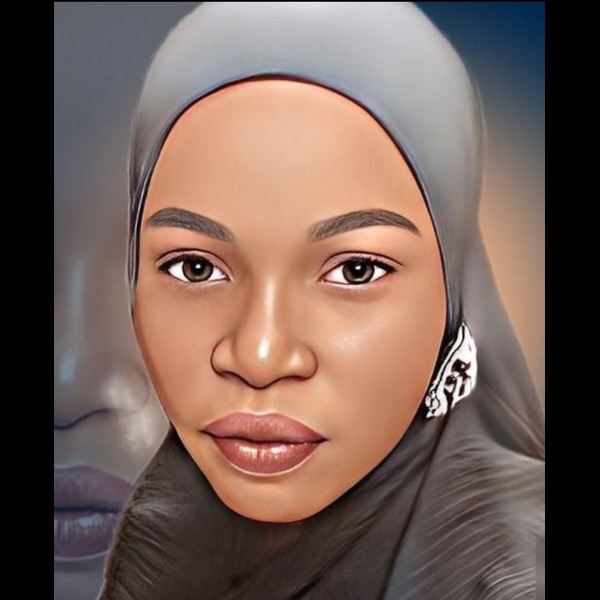25 Past Leaders Of Nigeria From 1914 Till Date
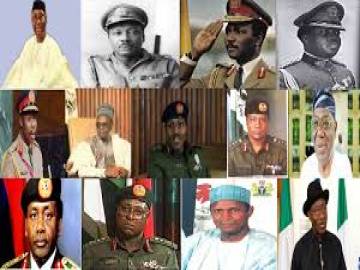
There is no denying that Nigeria is a diverse country that has historically been led by individuals with a range of political ideologies and beliefs. Because most of these former Nigerian presidents played a part in the growth that the nation has experienced to this day, it would be foolish to ignore their accomplishments.
I'm going to enumerate every Nigerian leader from 1914 till date. Please take the time to carefully study this page if you truly want to know the names, dates of birth, and terms in office of all the former Nigerian leaders. You will enjoy this content, I assure you.
List Of 25 Nigeria’s Past Leaders Since 1914-2024
- Lord Frederick Lugard – 1st Governor-General of Nigeria (1914 – 1919)
- Sir. Hugh Clifford – 2nd Governor-General of Nigeria (1914 – 1925)
- Sir. Graham Thompson – 3rd Governor-General of Nigeria (1925 – 1931)
- Sir. Donald Cameron – 4th Governor-General of Nigeria (1931 – 1935)
- Sir Bernard Bourdillon 5th Governor-General of Nigeria (1935 – 1943)
- Sir Arthur Richards – 6th Governor-General (1943 – 1948)
- Sir John Macpherson – 7th Governor-General (1948 – 1954)
- Sir James Robertson – 8th Governor-General (1954-1960)
- Rt Hon Dr. Nnanmdi Azikiwe – President and Head of State (1960-1966)
- Alhaji (Sir) Abubakar Tafawa Balewa – Prime Minister and Head of Government (1960 – 1966)
- Major General J. T. U. Aguiyi Ironsi – Head of State (January 15,1966 – July 29, 1966)
- General Yakubu Gowon – Head of State (July 29, 1966 – July 29, 1975)
- General Murtala Ramat Mohammed – Head of State (July 29, 1966 – February 13, 1976)
- General Olusegun Obasanjo – Head of State (February 13, 1976 – October 1, 1979)
- Alhaji Shehu Aliyu Usman Shagari – President (October 1, 1979 – December 31, 1983)
- Major General Muhammadu Buhari – Head of State (December 31, 1983 – August 27, 1985)
- General Ibrahim B. Babangida – President (August 27, 1985 – August 25, 1993)
- Chief Ernest Shonekan – Head of State (August 25, 1993 – November 17, 1993)
- General Sanni Abacha – Head of State (November 17, 1993 – June 8, 1998)
- Gen. A. A. Abubakar – Head of State (June 8, 1998 – May 29, 1999)
- Chief Olusegun Obasanjo – President (May 29, 1999 – 29 May 2007)
- Umaru Musa Yar’adua – President (29 May 2007 – 5 May 2010)
- Goodluck Jonathan – President (9 Feb 2010 – 29 May 2015. Acting for Yar’Adua to 5 May 2010)
- Muhammadu Buhari – President (29 May 2015 – 29 May 2023)
- Bola Ahmed Adekunle Tinubu – President (29 May 2023 – Till date)
1. Lord Frederick Lugard – 1st Governor-General of Nigeria (1914 – 1919)
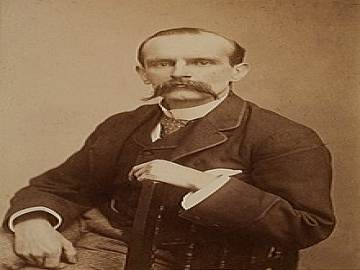
From 1914 until 1919, Lord Frederick Lugard served as Nigeria's first governor general. While his father raised him in Worcester, England, he was born in Madras, India. Like his father, Lord Lugard served as a colonial administrator, explorer of Africa, soldier, and mercenary.
In Nigeria, Lord Lugard is well-known for organizing the Northern province government and the 1914 amalgamation.
2. Sir. Hugh Clifford – 2nd Governor-General of Nigeria (1914 – 1925)
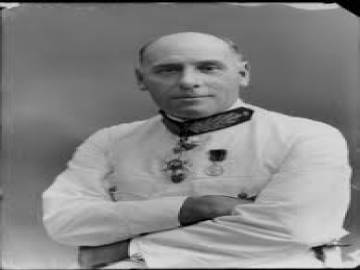
Nigeria's second governor general was Sir Hugh Clifford. In leadership from 1914 till 1925. London's Roehampton is where Clifford was born. Distinguished British Army General was his father's occupation.
READ ALSO » Top 5 Past Nigerian Heroes That Fought For Independent
Wikipedia states that Clifford later enlisted in the civil service with the assistance of his uncle, despite his initial desire to follow in the footsteps of his father, Henry Hugh Clifford. He is a highly esteemed individual worldwide. In reality, Clifford School is the name of numerous schools in Malaysia that bear his honor. Sir Hugh Clifford is highly regarded in Nigeria for introducing the electoral principle to the continent.
3. Sir. Graham Thompson – 3rd Governor-General of Nigeria (1925 – 1931)
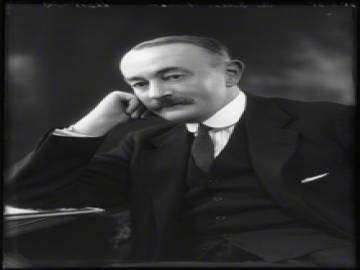
The third Governor General of Nigeria was Graham Thompson. He served as the Admiralty's leader as a British government officer from 1925 until 1931. In 1900, having attended Winchester and New College in Oxford, he made the decision to enter the civil service.
Sir Graham Thompson is well-known today for taxing Nigerians, which ultimately sparked the 1929 Aba women's rebellion.
4. Sir. Donald Cameron – 4th Governor-General of Nigeria (1931 – 1935)
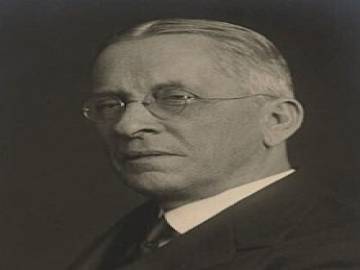
The fourth Governor General of Nigeria was Donald Cameron. From 1931 to 1935, he served as the nation's leader. You'll be shocked to learn this, sir. Donald Cameron did not attend university; instead, he worked in the civil service. His primary schooling was received only at Dublin's Rathmines School.
According to research, Sir Donald Cameron was the second British governor to be assigned the authority for Tanganyika and eventually Nigeria because of his fame.
5. Sir Bernard Bourdillon 5th Governor-General of Nigeria (1935 – 1943)
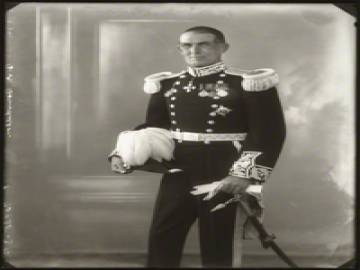
Nigeria's fifth governor general was Bernard Bourdillon. From 1935 until 1943, he was Nigeria's leader. Though Bourdillon was raised in both England and South Africa, he attended Tonbridge School in Tonbridge, Kent. He oversaw British colonial administrations in Nigeria (1935–1943) and Uganda (1932–1935).
Nigerians hold Sir Bernard Bourdillon in high regard for his partition of the nation into the provinces of the west, east, and north.
6. Sir Arthur Richards – 6th Governor-General (1943 – 1948)
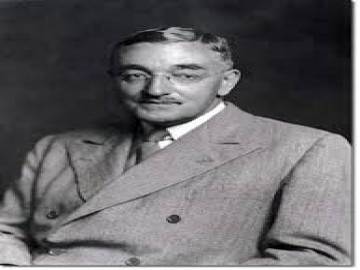
READ ALSO » Top 10 Greatest African Leaders Of All Time
Nigeria's sixth governor general was Sir Arthur Richard. Nigeria was ruled by him from 1943 to 1948. However, he did not serve as a colonial administrator purely in Nigeria. Along with North Borneo, the Gambia, Fiji, and Jamaica, Sir Arthur Richards led them all.
Richards' father, William Richard, gave birth to him in 1885. In 1907, he completed his BA at Christ Church, Oxford, and Clifton College, Bristol. Arthur Richards is mostly recognized in Nigeria for uniting the North and South under a single legislative body.
7. Sir John Macpherson – 7th Governor-General (1948 – 1954)
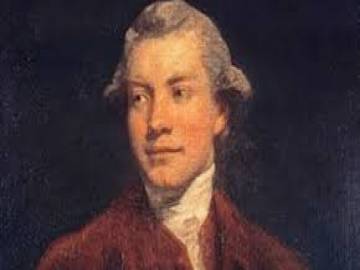
Governor-General No. 7 was Sir John Macpherson. He attended the University of Edinburgh as well as George Watson's College after attending the city of his birth. The way that Sir Macpherson came to be known was when he joined the Malayan Civil Service following World War II.
The present Nigerian constitution, the Sir John Macpherson Constitution, is remarkable because Nigerians were consulted throughout its drafting for the first time.
8. Sir James Robertson – 8th Governor-General (1954-1960)
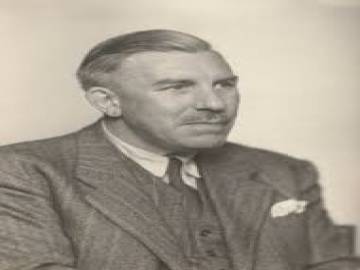
The eighth governor general of Nigeria was James Robertson. Following in John Macpherson's footsteps, Robertson presided over the nation from 1954 to 1960. He was dispatched to Nigeria as Queen Elizabeth's head of state because of his good deeds.
Studies also demonstrate Sir James Robertson's high level of education. He attended Oxford's Balliol College and Edinburgh's Merchiston Castle School. He continued to pursue his law degree (LLD) until 1961.
9. Rt Hon Dr. Nnanmdi Azikiwe – President and Head of State (1960-1966)

The first Head of State and first President of Nigeria was Dr. Nnamdi Azikiwe. He held the position from 1960 to 1966. Dr. Nanmdi Azikiwe was a well learned individual. He attended the University of Pennsylvania, Lincoln University, and Howard University to further his education.
He is regarded as one of the main forces for the country's independence today. On the other hand, he is referred to as the father of Nigerian nationalism.
10. Alhaji (Sir) Abubakar Tafawa Balewa – Prime Minister and Head of Government (1960 – 1966)
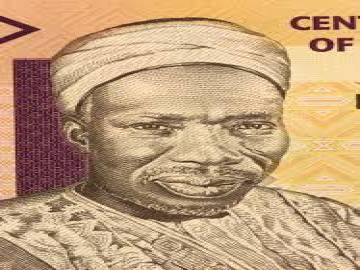
READ ALSO » Top 10 Most Shortest Serving Leaders Of All Time
The first Prime Minister and Head of Government of Nigeria was Alhaji (Sir) Abubakar Tafawa Balewa. He held the position from 1960 to 1966. Barewa College and the esteemed University College London were the schools attended by Abubakar Tafawa Balewa.
He served as Minister of Works before to taking office as prime minister. He was later appointed Minister of Transportation. Alhaji (Sir) Abubakar Tafawa Balewa became prime minister and head of state of Nigeria when the country gained independence in 1960. He is still regarded as one of the main movers for the country's independence today.
11. Major General J. T. U. Aguiyi Ironsi – Head of State (January 15,1966 – July 29, 1966)
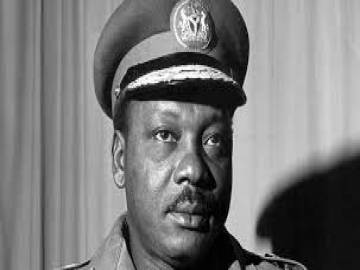
In Nigeria, the first Head of State and military commander was Major General J. T. U. Aguiyi Ironsi. He ruled from January 15, 1966, to July 29, 1966. Aguiyi-Ironsi attended primary and secondary school in Umuahia and Kano, respectively, based on research. At the age of 18, he enlisted in the Nigerian Army against the advice of his sister, who was at the time his caregiver.
International recognition has been accorded to Aguiyi for his role in the liberation of an Austrian ambulance unit that had been detained and imprisoned by the Congolese authorities in 1960, following his receipt of a gallantry award from the Austrian government.
12. General Yakubu Gowon – Head of State (July 29, 1966 – July 29, 1975)
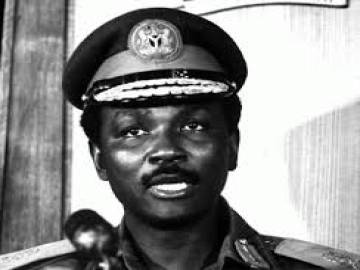
After General J. T. U. Aguiyi Ironsi, General Yakubu Gowon served as the Military Head of State. His reign began on July 29, 1966, and ended on July 29, 1975. Gowon is a native of Nigeria's Plateau State. During the horrific Civil War that took millions of Nigerian lives, he served as the nation's leader and was the youngest military chief of staff. General Yakubu Gowon remains alive until today. He is among the important leaders that Nigeria has ever had.
13. General Murtala Ramat Mohammed – Head of State (July 29, 1966 – February 13, 1976)
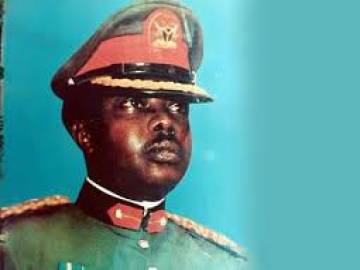
Another well-liked military head of state in Nigeria was General Murtala Ramat Mohammed. From July 29, 1966, to February 13, 1976, he was in power. Murtala Mohammed was born into a Fulani family in Kano state, which is believed to be a ruling elite family. After attending the Royal Military Academy at Sandhurst, he attended Cikin Gida Secondary School. The Nigerian Army recruited Murtala Muhammad in 1958. Later on, in 1976, he was assassinated.
14. General Olusegun Obasanjo – Head of State (February 13, 1976 – October 1, 1979)
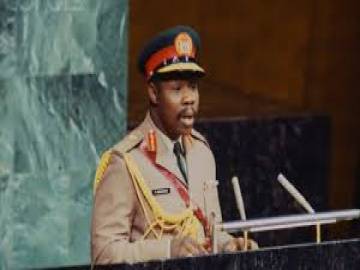
The subsequent military Head of State of Nigeria was General Olusegun Obasanjo. He ruled from February 13, 1976, to October 1, 1979. Obasanjo received his education in Abeokuta after being born in the hamlet of Ibogun-Olaogun. Nigeria has never had a better military president or head of state than General Olusegun Obasanjo.
He was a patriot from Nigeria in ideology. For this reason, he gave Alhaji Shehu Aliyu Usman Shagari's civilian government the reins of power.
15. Alhaji Shehu Aliyu Usman Shagari – President (October 1, 1979 – December 31, 1983)
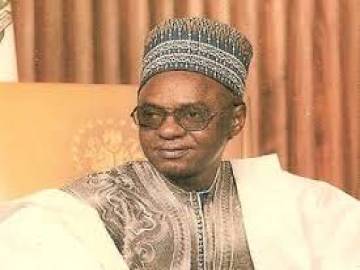
Following numerous military takeovers, Nigeria's next president was Alhaji Shehu Aliyu Usman Shagari. From October 1, 1979, to December 31, 1983, he was the ruler.
Because his father passed away five years after his birth, Alhaji Shehu Aliyu Usman Shagari was raised in a polygamous household and received his training from his uncle. According to research, Shagari was a teacher before he was elected as president. In 1951, he entered politics as the Northern People's Congress secretary in Sokoto, Nigeria.
General Olusegun Obasanjo became Nigeria's first democratically elected president when he gave Alhaji Shehu Aliyu Usman Shagari the reins of power after he had drafted the country's constitution in 1979. Later, on December 28, 2018, Shagari passed away (aged 93).
16. Major General Muhammadu Buhari – Head of State (December 31, 1983 – August 27, 1985)
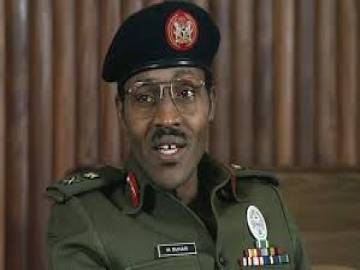
Major General Muhammadu Buhari emerged as the new Head of State shortly after Alhaji Shehu Aliyu Usman Shagari assumed office. From December 31, 1983, to August 27, 1985, he was the nation's ruler. Buhari was the General Officer Commanding (GOC) at the time.
Buhari was a key player in the Civil War. At the age of 19, he enlisted in the Nigerian army, and in 1962, he enrolled in the Nigerian Military Training College (NMTC).
General Muhammadu Buhari says he's changed and is now a staunch advocate of democracy. In Nigerian history, Buhari is one of the former leaders who has battled corruption in the country from 1914 to the present.
17. General Ibrahim B. Babangida – President (August 27, 1985 – August 25, 1993)
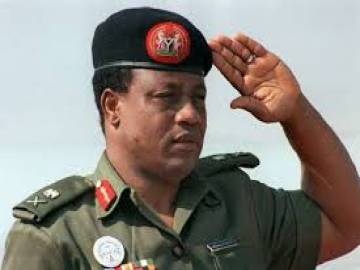
On August 17, 1941, General Ibrahim B. Babangida, often known as IBB, was born in Minna, Niger State. He enrolled in Kaduna's Nigerian Military Training College, which is currently the Nigerian Defence Academy. Babangida was a major planner of the military takeovers in Nigeria, according to Wikipedia.
Later, Babangida was elected President of Nigeria, serving in that capacity from August 27, 1985, until August 25, 1993. His administration was noteworthy due to the numerous developments that were started during his period. He was one of the Nigerian leaders from 1914 until the present who made a significant contribution to the development of the nation.
18. Chief Ernest Shonekan – Head of State (August 25, 1993 – November 17, 1993)
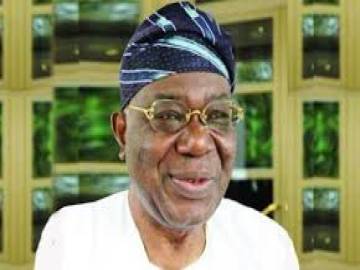
Following Babangida, Ernest Shonekan held the position of authority. From August 25, 1993, till November 17, 1993, he was the ruler of Nigeria. Shonekan's rule didn't seem to last very long. According to history, Chief Ernest Shonekan was the first businessman and lawyer to ascend to the position of leadership in Nigeria. He was even employed as a Chairman of the well-known United Africa Company of Nigeria. Margaret O. Shonekan, a Nigerian public servant, was married to Chief Ernest Shonekan.
19. General Sanni Abacha – Head of State (November 17, 1993 – June 8, 1998)
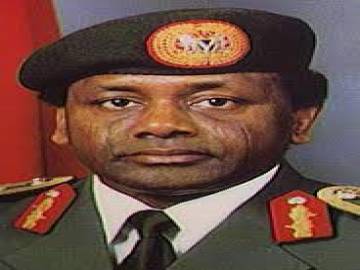
The tenth military head of state in Nigeria was General Sanni Abacha. November 17, 1993, to June 8, 1998, was his term in office. Kano State is where Abacha was born and raised. He enlisted in the Nigerian military after attending the Mons Officer Cadet School in Aldershot, England.
Research indicates that the first Nigerian soldier to reach the rank of full military general without losing a rank was General Sanni Abacha. This demonstrates how committed an army he was. The year 1998 marked his eventual death.
20. Gen. A. A. Abubakar – Head of State (June 8, 1998 – May 29, 1999)
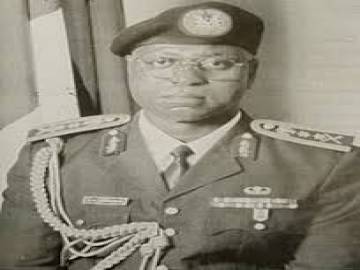
After Abacha, the next in line of authority was Abdulsalami Abubakar, also referred to as A. A. Abubakar. From June 8, 1998, until May 29, 1999, he served as Nigeria's military ruler. This occurred subsequent to Sanni Abacha's demise.
In 1942, Abubakar was born. Before enrolling in Kaduna Technical College, he attended Authority Primary School from 1950 to 1956. Furthermore, research indicates that Abubakar was affiliated with both the Nigerian Air Force and the Nigerian Army during his tenure.
His stature was so great that the Defence Service Medal was awarded to him. Consequently, he was bestowed with the title of Grand Commander of the Federal Republic of Nigeria (GCFR). It seems that this is Nigeria's highest honor.
21. Chief Olusegun Obasanjo – President (May 29, 1999 – 29 May 2007)
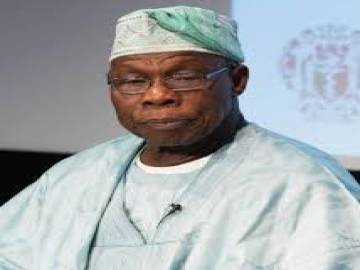
Chief Olusegun Obasanjo assumed leadership in Nigeria for the second time. But this time, instead of being a military head of state, he was president. From May 29, 1999, till May 29, 2007, Obasanjo presided over the country.
Nigerian patriot Obasanjo is well-known. He firmly feels that Nigeria would perform better as a united nation-state as opposed to an ethnically fragmented one.
Most of the advancements Nigeria has today were started by Obasanjo. For this reason, he is frequently said to be Nigeria's best president ever. To raise the literacy rate of Nigerians, Obasanjo was the driving force behind the establishment of the Niger Delta Development Commission and the implementation of the Universal Basic Education Program.
22. Umaru Musa Yar’adua – President (29 May 2007 – 5 May 2010)
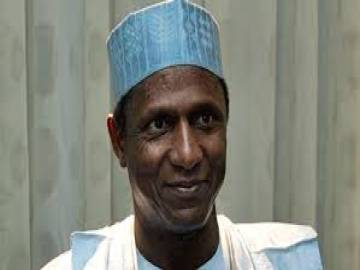
After Chief Olusegun Obasanjo, Umaru Musa Yar'adua was the next in line for leadership. From May 29, 2007, until his death on May 5, 2010, he served as Nigeria's president. Yar'adua was born in Nigeria's Katsina in 1953. He attended the esteemed Ahmadu Bello University (ABU) as well as Barewa College.
You may be surprised to hear that one of Nigeria's greatest presidents in history was Umaru Musa Yar'adua. Prior to becoming president, he even served as the governor of Katsina from 1999 to 2007.
23. Goodluck Jonathan – President (9 Feb 2010 – 29 May 2015. Acting for Yar’Adua to 5 May 2010)
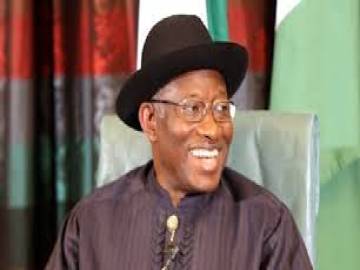
Goodluck Jonathan took over as vice president under the presidency of Umaru Musa Yar'adua and led Nigeria as president from February 9, 2010, to May 29, 2015. But he continued to represent Yar'Adua until May 5, 2010.
Goodluck Jonathan attended the University of Port Harcourt (UNIPORT) before entering Nigerian politics. He had served as Bayelsa state's deputy governor before taking over as acting governor when the outgoing governor was impeached due to his illicit activities.
During Umaru Musa Yar'adua's presidency, Goodluck Jonathan served as vice president. He remained silent till after Umaru Musa Yar'adua passed away.
The majority of Goodluck Jonathan's term was devoted to attempting national reconciliation. On the other hand, following his defeat in the 2015 general election, he was appointed chair of the recently established International Summit Council for Peace (ISCP).
24. Muhammadu Buhari – President (29 May 2015 – 29 May 2023)
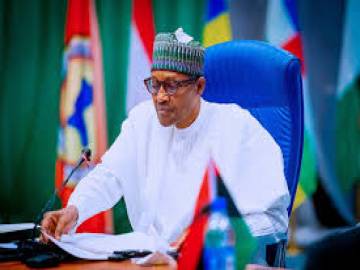
From May 29, 2015, to May 29, 2023, Muhammadu Buhari served as Nigeria's president. Buhari attempted in 2003, 2007 and even in 2011 general election before winning in 2015. With a lead of victory over Atiku Abubakar of more than 3 million votes in 2019, he won a second term as president of Nigeria, extending an additional four years.
25. Bola Ahmed Adekunle Tinubu – President (29 May 2023 – Till date)
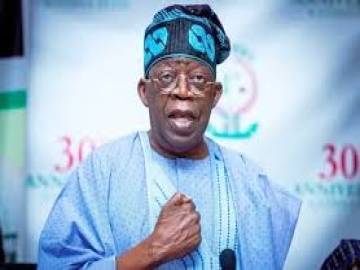
Bola Ahmed Tinubu, a former governor of Lagos State, was declared the winner of the 2024 presidential election by the Independent Electoral Commission (INEC), and he is currently the president of Nigeria. On the 29th of May, 2023, the president was sworn in. For the next four years, Bola Ahmed Adekunle Tinubu is anticipated to lead the nation as president. Furthermore, he should be legitimately reelected by the citizens of the Federal Republic of Nigeria, he would be eligible to compete for office again for a another four years.
Nonetheless, it should be mentioned that the 2023 election was reportedly one of the most manipulated in the country's history. Despite several doubts about the election's outcome and legal challenges to its validity, Bola Ahmed Adekunle Tinubu emerged victorious and went on to become the country's president.
Conclusion
The historical overview of Nigeria's leadership from 1914 to 2024 highlights the significant contributions of various leaders to the nation's development and governance. Understanding the diverse political ideologies and accomplishments of these leaders is essential for appreciating Nigeria's complex political landscape and its journey towards independence and democracy.
